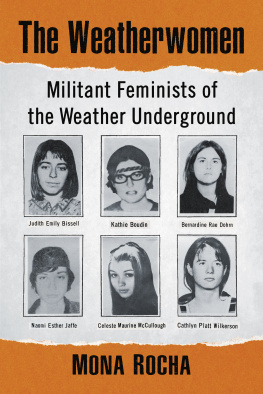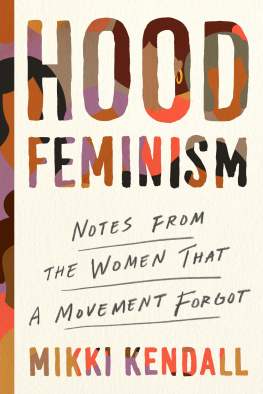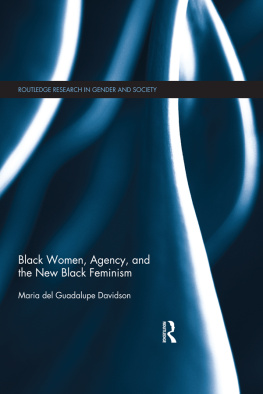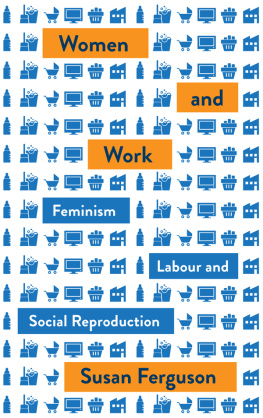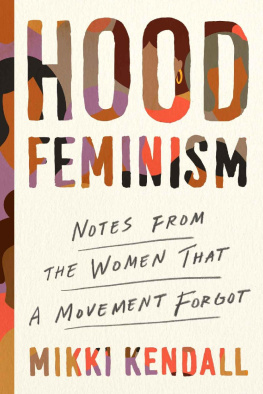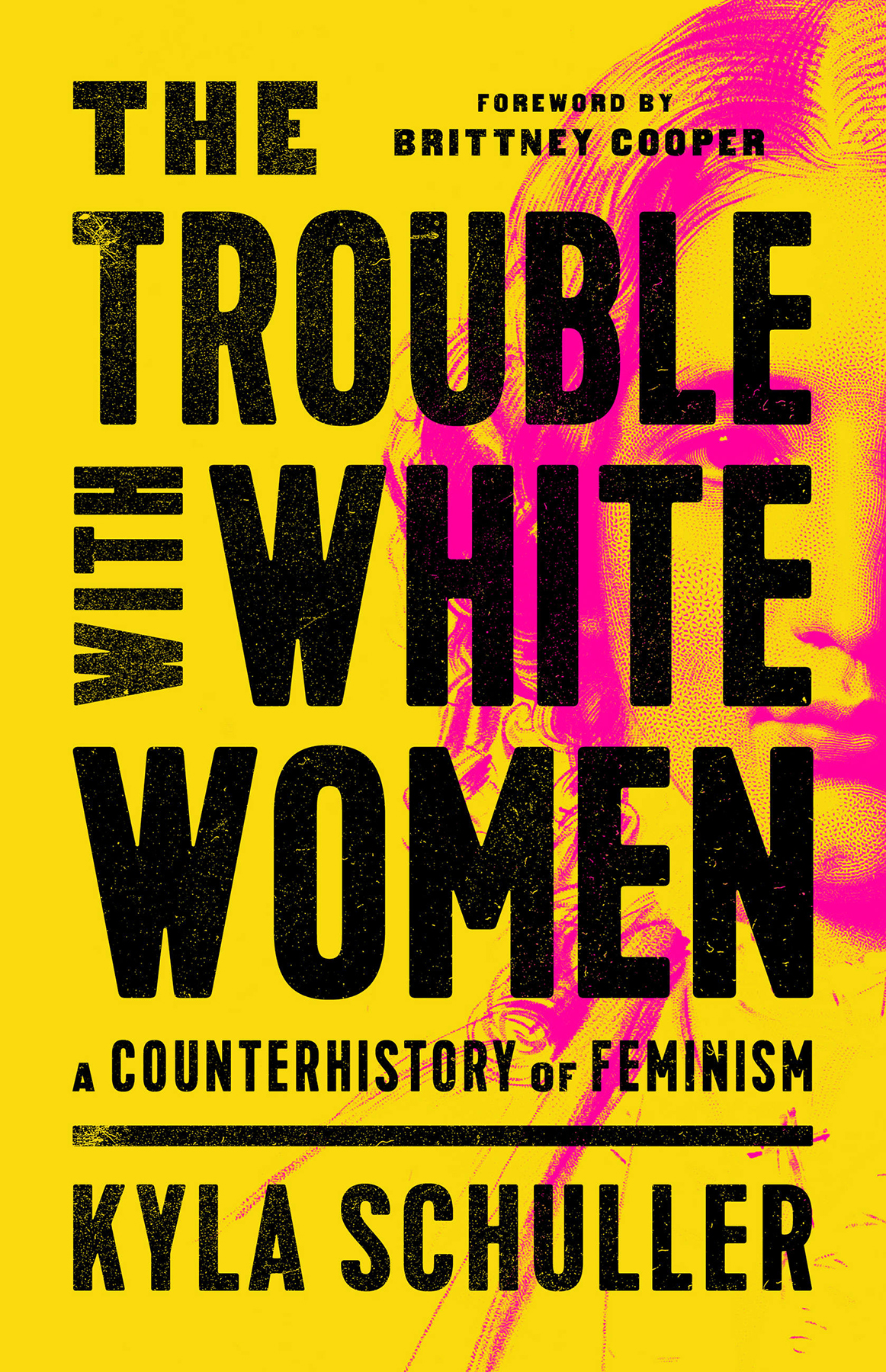
Copyright 2021 by Kyla Schuller
Cover design by Pete Garceau
Cover illustration iStock/Getty Images
Cover copyright 2021 Hachette Book Group, Inc.
Hachette Book Group supports the right to free expression and the value of copyright. The purpose of copyright is to encourage writers and artists to produce the creative works that enrich our culture.
The scanning, uploading, and distribution of this book without permission is a theft of the authors intellectual property. If you would like permission to use material from the book (other than for review purposes), please contact permissions@hbgusa.com. Thank you for your support of the authors rights.
Bold Type Books
116 East 16th Street, 8th Floor, New York, NY 10003
www.boldtypebooks.org
@BoldTypeBooks
First Edition: October 2021
Published by Bold Type Books, an imprint of Perseus Books, LLC, a subsidiary of Hachette Book Group, Inc. Bold Type Books is a co-publishing venture of the Type Media Center and Perseus Books.
The Hachette Speakers Bureau provides a wide range of authors for speaking events. To find out more, go to www.hachettespeakersbureau.com or call (866) 376-6591.
The publisher is not responsible for websites (or their content) that are not owned by the publisher.
Library of Congress Cataloging-in-Publication Data
Names: Schuller, Kyla, 1977 author.
Title: The trouble with white women : a counterhistory of feminism / Kyla Schuller.
Description: First edition. | New York : Bold Type Books, [2021] | Includes bibliographical references.
Identifiers: LCCN 2021008089 | ISBN 9781645036890 (hardcover) | ISBN 9781645036883 (ebook)
Subjects: LCSH: FeminismMoral and ethical aspectsUnited StatesHistory. | Women, WhiteCivil rightsUnited StatesHistory. | Minority womenCivil rightsUnited StatesHistory. | Minority women activistsUnited StatesHistory. | RacismUnited StatesHistory.
Classification: LCC HQ1426 .S35 2021 | DDC 305.420973dc23
LC record available at https://lccn.loc.gov/2021008089
ISBNs: 978-1-64503-689-0 (hardcover), 978-1-64503-688-3 (ebook)
E3-20210831-JV-NF-ORI
To my parents
Explore book giveaways, sneak peeks, deals, and more.
Tap here to learn more.

All flourishing is mutual.
Robin Wall Kimmerer, Braiding Sweetgrass
ONE OF THE BIGGEST CHALLENGES I HAVE FACED AS A BLACK FEMINIST TEACHER AND WRITER has been convincing Black women that feminism is relevant to their lives. Black womens resistance to feminist politics and ideas has never been about a resistance to gender equality. We live with the intimate and structural consequences of patriarchy every day. The biggest stumbling block in Black womens journey to fly the flag of feminism has been white women. Somewhere a white woman is talking about how we all need to be united as women, regardless of race or creed. And somewhere a Black woman is giving that white woman a side eye.
Given the perennial challenge white women pose to cross-racial feminist solidarity, the clearer we get about the nature of that threat, the better equipped we will be to address the problem. Kyla Schullers The Trouble with White Women faces the challenge head-on with aplomb, erudition, and excellent storytelling. Schuller makes clear precisely what the problem is: The trouble with white feminist politics is not what it fails to address and whom it leaves out. The trouble with white feminism is what it does and whom it suppresses. Its not that white women cant do good in the world or be useful allies in feminist world-making. The problem, rather, is white feminism and its gravely limited conception of how to address the injustices that all women face.
This book is a deeply erudite and much needed historically grounded treatment of a phenomenon that mostly makes for wars among feminists on social media. It represents the signature approaches that Kyla Schuller is known fora rich textual analysis covered with both a broad and deep understanding of the archive.
Schuller traces the genesis of white feminism across several generations beginning with the shameless invocations of racism that marked Elizabeth Cady Stantons fight for suffrage. Though I am a student of this history, I was still floored at just how strident Stanton was in her willingness to throw Black men under the bus, trafficking in the most racist stereotypes of her day, in order to procure the vote for white women. Schuller goes on to demonstrate the changing same of white feminist politics among figures like Margaret Sanger, Betty Friedan, and Sheryl Sandberg. Admirably, Schuller manages to resist the kind of liberal self-flagellation that is a hallmark of an unhelpful white guilt, and desiccates white womens tears, refusing the safety, comfort, and space-taking that so often follow them.
One of our nations top gender studies scholars and, quite frankly, one of my favorite scholars to read period, Schuller pairs each white woman thinker under examination here with a generational peer who is Black or Indigenous, or Latinx, or trans. In doing so, she reminds us that cisgender white women did not invent feminism, and that white feminism as a project has been premised in large part on a refusal to engage the work of Black, Indigenous, and trans women who call into question the end goals, not to mention the organizing tactics, of white feminists. Its not that we havent been there; its that white women have refused to listen.
For the Black women who need white women to admit it, this book will do that. For white women who continually ask me how to get better, I say, begin here.
We can no longer afford a fractured feminist movement. All of the things women won for themselves a generation ago have come under pressing attack in these first two decades of the new millennium, and all of us are having to gird ourselves for battle again. It goes without saying that we will be stronger together, but part of the argument of this book is that white feminism is a feminist politics we can and should leave behind. In its place, white women can come together with other groups of women and embrace their visions of an intersectional, trans- and Indigenous inclusive future.
Anyone who knows me or has read me knows that I dont count very many white women among my friend groups, for precisely the reasons that this book so deftly analyzes. But I have called Kyla my friend for nearly a decade now. She produced this work because she lives her commitment to a feminism not grounded in white womens racism or civilizing imperatives. She is an ally for Black women and women of color colleagues both publicly and privately in ways that make a difference. Anyone can write a scholarly tome analyzing these issues, but living these politics is the thing that matters most. Kyla practices what she preaches in her teaching, her writing, and her relationships. Rich and rigorous in both method and content, this book is one I will return to again and again.
Brittney Cooper
The history of American feminism has been primarily a narrative about the heroic deeds of white women.
Beverly Guy-Sheftall, Words of Fire
INFAMOUSLY, HALF OF ALL WHITE WOMEN VOTED FOR DONALD TRUMP IN 2016 AND 2020 yet despite the repetition of these notorious statistics almost to the point of incantation, were still missing the full scale of the problem. We know that twice, one out of two white women supported the most misogynist, white supremacist US president in a century. This is widely recognized as a crisis for racial justice. But it is also a hidden crisis for feminism. A lurking threat remains obscured, even as professional and social media obsess about these voters attitudes toward gender equality. Surely, commentators declare, Trump-supporting women must not be feminists. After all, the candidate bragged about sexual assault. And, they continue, liberals generally support womens rights while conservatives oppose them. Republican white women, the standard line of thinking goes, chose their whiteness and their class status over their gender, unwittingly sacrificing themselves.


